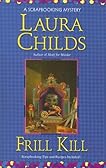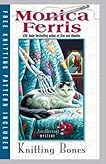 If I have an all-time favorite sub-genre of literature it is young adult science fiction. I eat the stuff up. I loved Philip Pullman's Dark Material's Trilogy long before The Golden Compass got made into a decent (but not great) movie
If I have an all-time favorite sub-genre of literature it is young adult science fiction. I eat the stuff up. I loved Philip Pullman's Dark Material's Trilogy long before The Golden Compass got made into a decent (but not great) movie I started The Book of Ember on Friday night and finished it Saturday afternoon. It is, after all, a children's/young adult book. But it is also a good engaging story that captures the imagination and encourages devouring the book. One of the appeals of young adult sci fi is that it has to be relatively fast-paced to appeal to a young reader. Plus, the stories tend to be shorter which leaves less room for the much more detailed description that science fiction authors often use to flesh out their storylines.
But shorter does not mean less well-developed. DuPrau has created an interesting and novel world for the first book in her trilogy. The great mystery of the world is not that difficult to figure out. The city of Ember lives in darkness aside from the electric lights that are run by a generator. But the lights are failing, supplies are in short supply, and the mayor is corrupt. Lina and Doon are some of the only citizens who seem to want to fix the problem and find a solution.
The characters in DuPrau's novel remind me of Lois Lowry's characters in The Giver - they question their world and no that something is amiss. They have a greater curiosity than normal which allows them a greater understanding of the world.
I will happily read the rest of the series. My husband asked if it was a good book to read to our 5 1/2 year old son. For some kids I think it would be: it's not too scary, there's nothing inappropriate. My son doesn't love chapter books yet, so I think we'll hold off for a while.




